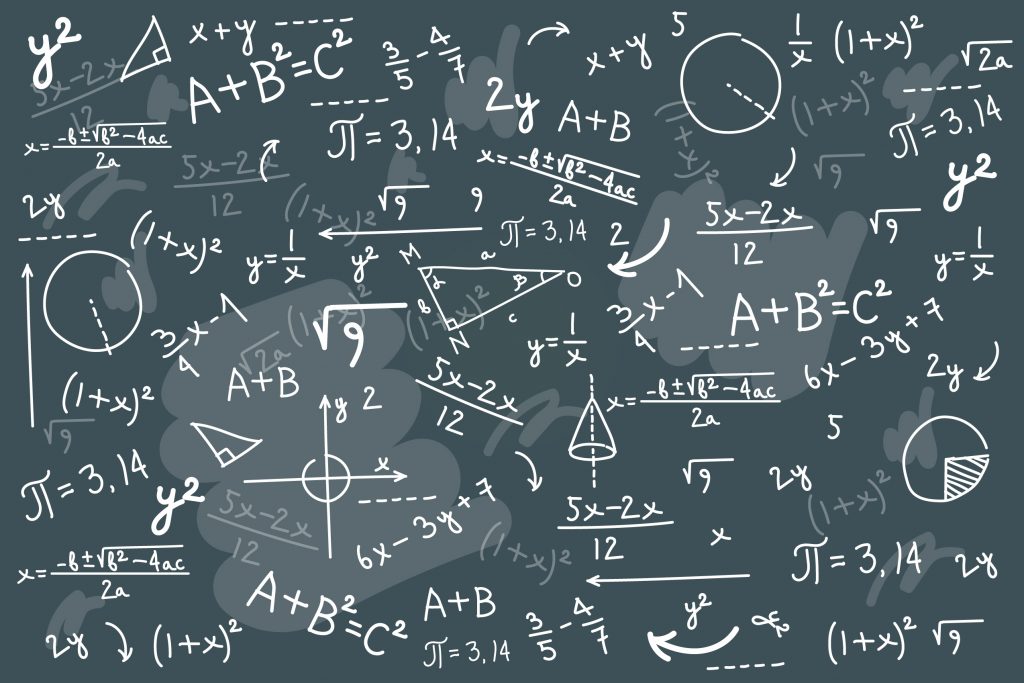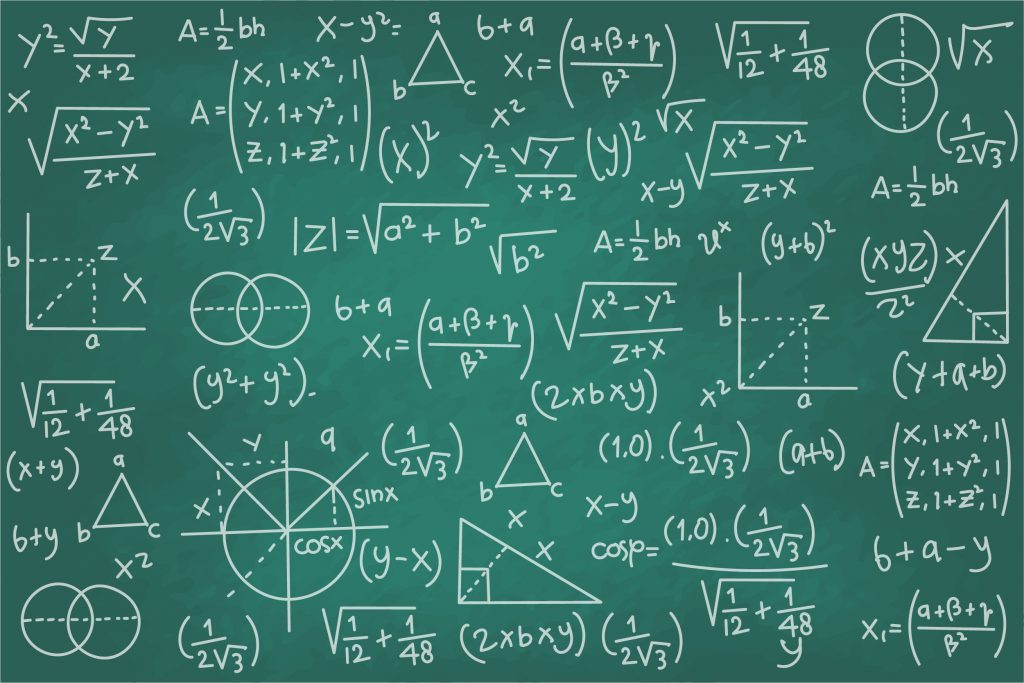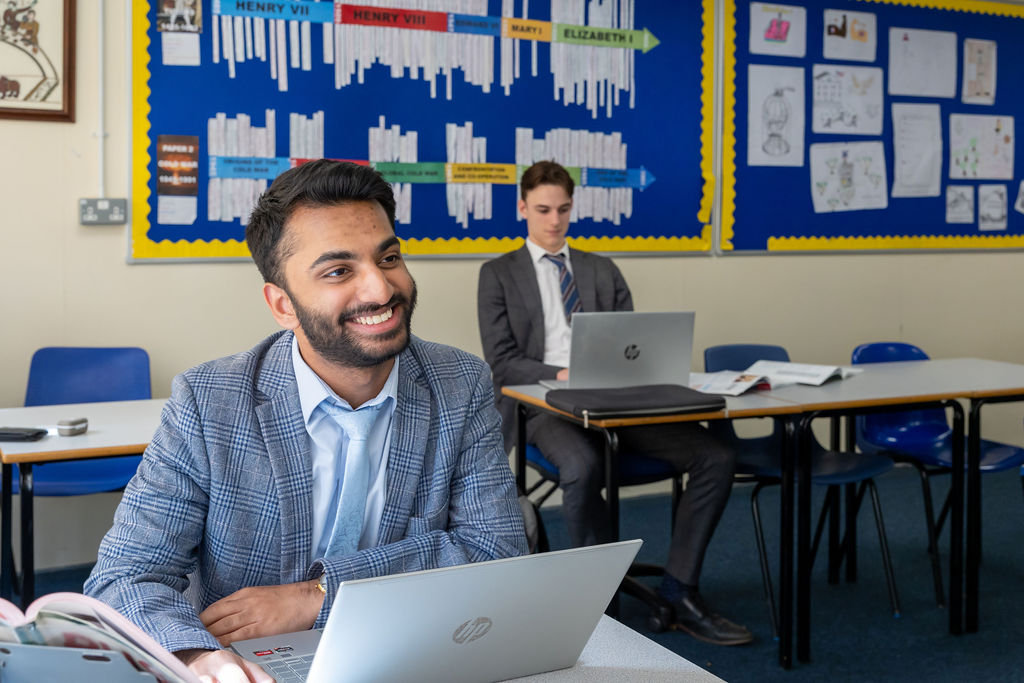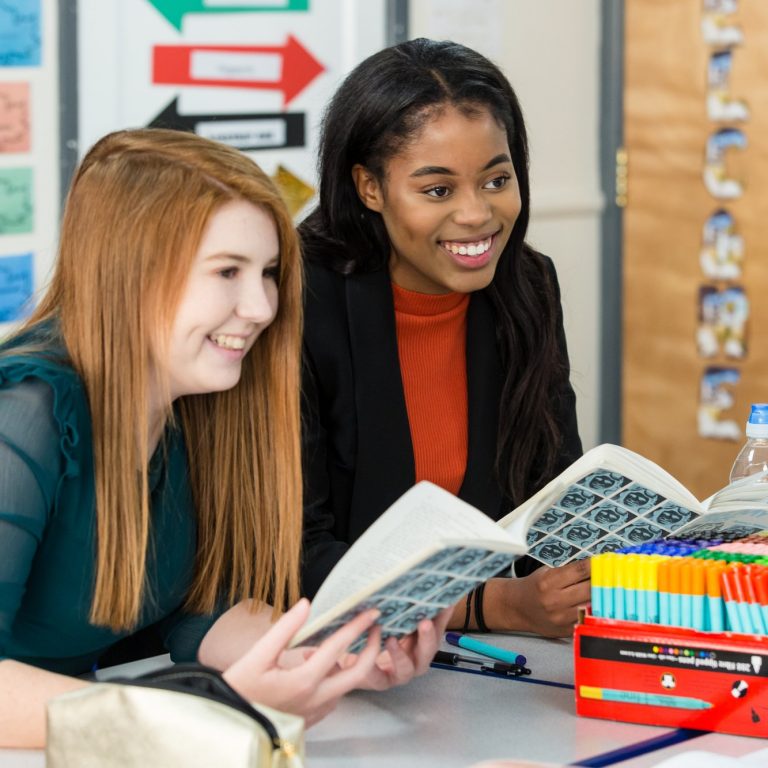The curriculum for Sixth Form at Pitsford School is broad – we offer a range of A levels and BTECs together with the EPQ (Extended Project Qualification). The EPQ allows students to further develop the breadth of their learning, both in terms of content and skills, which will support them in their next step in academia and beyond. For a copy of our full Sixth Form Options Booklet please contact our Registrar, Mrs Michelle Jackman, registrar@pitsfordschool.com
Sixth Form Curriculum
Students entering the Lower Sixth may choose to study four subjects, continuing with either all four subjects or three chosen subjects into Upper Sixth. Students may also choose to start Lower Sixth with three subjects, carrying these through to the Upper Sixth, which is all that is required for university courses. (To find out more what universities typically require of students the UCAS website is a good place to start.)
Post-16 courses are available in the following subjects; Art, Biology, Business Studies, Chemistry, Computer Science, Economics, English Literature, French, Geography, History, Mathematics, Further Mathematics, Music, Photography, Physics, Psychology, Spanish and Physical Education. In addition to their subject choices, all students will undertake an Extended Project Qualification. Please see our Sixth Form Options Booklet for more information on each of the subjects available.
Students’ time is focussed on their studies and they will spend over 70% of their week working in these disciplines. Sixth Formers will not be expected to adhere to a rigid timetable of homework, as part of the skill in Sixth Form is to develop self-discipline and direction of study. Generally speaking, at least five hours per week per subject of independent study will be required to keep up with work in each subjects selected.
In addition to timetabled lessons, at Pitsford the Sixth Form have allocated ‘individual study periods’. This takes place in the Michael Robinson Memorial Library for Year 12 or in the Sixth Form Centre for Year 13.
The timetable for the Sixth Form is: Each A Level is allocated 7 periods per week, arranged in five teaching blocks for time-tabling purposes (for minority subjects, this may vary). There is a sixth teaching block of five periods that is made up of
• Extended Project Core Skills Programme (2 periods per week)
• Games (3 periods per week)
A Sixth Former studying 4 A Levels will normally have seven individual study periods per week.
Art & Design

Art & Design
The A Level Art course encourages an adventurous and enquiring approach to art and design. If you enjoy working creatively and have a flair for drawing, painting, creating wild and wonderful things in 3D materials or just experimenting with different techniques and materials you haven’t used before then you could find this course very fulfilling.
Students have the opportunity to experiment with a range of materials and media; successfully demonstrate and create artwork that embraces a range of ideas and outcomes in a variety of materials. Look at Art and Design concepts historically and through contemporary artists of today. Visits to Museums/Galleries or appropriate workshops are made to provide first-hand experience of artwork and artefacts relevant to students needs and requirements.
Biology

Biology
A Level Biology will give you an exciting insight into the contemporary world of Biology. It covers the key concepts of biology, and practical skills are integrated throughout the course. This combination of academic challenge and practical focus makes the prospect of studying A Level Biology highly appealing.
Students will learn about the core concepts of biology and about the impact of biological research and how it links to everyday life. They will learn to apply their knowledge, investigate and solve problems in a range of contexts.
In addition to the classroom teaching, there is a residential biology field trip that offers a fantastic opportunity for students to undertake ecological investigations in a variety of inspiring habitats. There will be an additional cost associated with the trip.
Business

Business
A Level Business is designed to engage students through topics and issues that are relevant in today’s employment, such as digital technology, business ethics and globalisation. Students will develop the knowledge and skills needed to analyse data, think critically about issues and make informed decisions; all skills that are needed for further study and employment.
Question papers use a variety of assessment styles including multiple choice, short answer, data response, essay and case studies.
Real life case studies will be used whenever possible to make it easier for students to relate to and apply their knowledge and skills developed though the course.
Chemistry

Chemistry
A Level Chemistry will try to give students the skills and understanding to make decisions about the way chemistry affects their everyday life by applying concepts into contemporary areas of chemistry. In addition, an A level in Chemistry allows students to develop a range of generic skills. For instance, a successful A level chemist will be an effective problem-solver and be able to communicate efficiently both orally and with the written word.
Handling data will be a key part of the student’s work, allowing them to demonstrate information retrieval skills as well as use of numeracy and ICT. Students will build up a range of practical skills that require creativity and accuracy as well as developing a firm understanding of health and safety issues. As chemistry is a subject in which much learning stems from experimental work it is likely that students will need to work effectively as part of a group, developing team participation and leadership skills.
Computer Science

Computer Science
Computer Science has computational thinking at its core; thinking that provides solutions to problems, design systems and recognises the nature of human and machine intelligence. It is a creative subject that involves the innovative thinking and development of ideas through coding.
Students will learn to become strong programmers using different programming paradigms. As part of this students will explore many of the standard algorithms used in searching, sorting and pathfinding and will be able to select the most appropriate use, based on its efficiency and suitability for the problem at hand. Most importantly, students will develop knowledge of agile methodologies, gaining exposure to practical application development projects highly valued by the current employment market.
Economics

Economics
A Level Economics is a study of how mankind organises resources and manages an economy to raise our standard of living. The course addresses a wide range of contemporary issues:
Will the Euro survive? Why is China so successful? Is it really necessary to cut government spending? Should the rich pay more tax? Can economists prevent further climate change? Are supermarkets good for society? Should fast food be subject to more restrictions and higher taxes?
This course has no coursework or controlled assessment units. It is not necessary for students to have studied GCSE Economics before starting work on this specification and no prior knowledge of Economics is necessary. However a keen interest in economics, business and politics will help students with this course.
English Literature

English Literature
You should choose English Literature if you:
- Like to engage in the lives, voices, narratives and worlds of others.
- Want to read some of the greatest literary works ever written.
- Want to cultivate a love of language and appreciate the beauty of the writer’s craft.
- Can confidently ‘hold your own’ in debates and discussions.
- Are engaged, interested and passionate about popular culture and world events.
- Want to study an A-level that facilitates a host of prestigious career paths.
- Want to study an A-level that is rigorous, highly academic and highly regarded.
- Want your imagination to flourish.
English Language

English Language
The A-level English Language specification offers opportunities for students to develop their subject expertise by engaging creatively and critically with a wide range of texts and discourses. Students will create texts and reflect critically on their own processes of production, while analysing the texts produced by others. The specification explores the study of English Language both as a medium of communication and as a topic in its own right, with an emphasis on the ability of students to pursue lines of enquiry, debate different views, and work independently to research aspects of language in use. Language is seen as a creative tool for expression and social connection, as well as for individual cognition.
The study of language as a symbolic system used to assert power in society is also fundamental to the scope of this specification. The methods of analysis appropriate to the fields of English language/linguistics underpin all the elements of this specification, and these are applied to distinctive topic areas. From childhood language acquisition, to race, gender, class and regional dialects, English Language is the study of culture and psychology as much as it is the study of history and heritage. There is also scope for students to pursue their own independent lines of enquiry and topics for writing, with support from their teachers, in the non-exam assessment.
Extended Project Qualification (EPQ)

Extended Project Qualification (EPQ)
The Extended Project Qualification (EPQ) is a fast growing, Level 3 Qualification which is worth up to and additional 28 UCAS points (half an A level). It is graded A*-E and some universities will modify their entry requirements if a student has a good EPQ result.
All Year 12 students are timetabled to attend lessons which teach the skills needed to complete the independent research project. The majority of students continue and complete their EPQ for a June submission so that they have their results when they are completing their university application forms.
French

French
A world language: more than 200 million people speak French in 77 states on the five continents. It is also the second most widely learned language after English and the sixth most widely spoken language in the world.
A language for higher education: A good level of French makes you eligible for courses in renowned French universities and business schools, ranked amongst the highest in the world.
A language for the job market: An ability to speak French offers many opportunities on the UK job market with multinational companies seeking French speaking employees. France is the world’s fifth biggest economy and number-three destination for foreign investment. It is the second most sought after language by UK employers.
A working and official language in many global organisations: If you want a career in any international organisation you NEED French. The biggest organisations in the world (the United Nations, the European Union, UNESCO, NATO, the International Olympic Committee, the International Red Cross…) will require it.
A language of culture and travel: French is the international language of cooking, fashion, theatre, the visual arts, dance and architecture and offers access to great works of literature, cinema and music.
Geography

Geography
Geography encourages students to apply geographical knowledge theory and skills to the world around them. In turn this will enable students to develop a critical understanding of the world’s people, places and environments in the 21st century. Students should be able to develop both knowledge and understanding of contemporary geographical concepts together with transferrable skills that will enable students to progress to higher education and a range of employment opportunities. The focus of the specification is to develop an enthusiasm for and competence in geography by using contemporary real-world contexts, from a range of specified spatial scales, and through engagement with and practical application of geographical skills and techniques in the field. The specification draws on both physical and human geography, explores people-environment interactions and encourages development of fieldwork at the local level to enable students to post enquiry questions.
There is a compulsory visit for fieldwork – local and a residential to Snowdonia. There will be an additional cost associated with the trips.
History

History
History A Level encourages students to understand and think intelligently about aspects of modern history. It involves much more than just learning vast amounts of factual information. Of course, there is a lot to learn and students will immediately notice in how much greater detail a topic is covered than at GCSE level. However, what students find most rewarding in History is the attempt to understand, evaluate and analyse the past. Questions at A Level will never just ask you to recount what happened. They are designed to make you think critically about the material and to formulate your own assessments. You will, for example, learn to make judgements about the policies of individual leaders and nations, or to analyse the causes of a particular event and evaluate the importance of different factors.
IELTS

IELTS
The International English Language Testing System (IELTS) is ‘the world’s most popular English proficiency test for higher education.’
The IELTS examination is taken at an external test centre.
IELTS is recognised by all British universities as an indication of a student’s proficiency in the use of English, and is also recognised by the top 25 US universities.
International students in the Sixth Form at Pitsford take classes to prepare them for the IELTS examination. Many of the skills practised, such as academic essay writing, analysing written texts and listening to lectures, are also beneficial towards their A level subjects.
Mathematics

Mathematics
Although it may seem a long way off, one day, you will be looking for a job. Your transferable skills will be of particular interest to potential employers, who will be concerned with the overall contribution you can make to their organisation. So what are these skills?
- Analytical skills; clear thinking, attention to detail, ability to follow complex reasoning.
- Communication skills; ability to communicate an argument precisely and logically.
- Investigative skills; knowing where and how to find information.
- Learning skills; ability to understand difficult concepts and apply them to a problem.
The course is built around three distinct branches of Mathematics:
Pure Mathematics is the branch of mathematics that studies and develops the principles for their own sake rather than their immediate usefulness. The topics are algebraic in nature
Mechanics is the branch of applied mathematics dealing with motion and forces producing motion. It has its origins in ancient Greece with the writings of Aristotle and Archimedes, though most of classical mechanics deals with the material laid down by the great Sir Isaac Newton.
Statistics is the study of the collection, organisation, analysis interpretation and presentation of data.
Further Mathematics

Further Mathematics
Further Mathematics is a qualification which both broadens and deepens the mathematics covered in A level Mathematics. Further Mathematics is taken alongside an A level in Mathematics.
Further Mathematics qualifications are highly regarded and are warmly welcomed by universities. Students who take Further Mathematics are really demonstrating a strong commitment to their studies, as well as learning mathematics that is very useful for any mathematically rich degree. Some prestigious university courses require you to have a Further Mathematics qualification and others may adjust their degree requirements more favourably for students with Further Mathematics.
The Mathematics course is designed to extend the knowledge of mathematicians beyond the standard A Level course and consists of three branches of mathematics; Pure, Discrete and Statistics.
Pure Mathematics is the branches of mathematics that study and develop the principles of mathematics for their own sake rather than immediate usefulness. The topics are algebraic in nature and often overlap with undergraduate level mathematics.
Discrete Mathematics is a discipline that deals with the application of advanced analytical methods to help make better decisions. It is often concerned with determining the maximum (of profit, performance or yield) or minimum (of loss, risk or cost) of some real world objective. Originating in military efforts during WWII, its techniques have grown to concern problems in a variety of industries.
Statistics is the study of the collection, organisation, analysis, interpretation and presentation of data. It also includes combinatorics and probability distributions for discrete random variables.
A Level Further Mathematics is a qualification which both broadens and deepens the mathematics covered in A Level Mathematics. Further Mathematics is taken alongside an A Level in Mathematics.
Music

Music
A level Music provides an excellent basis for lifelong learning and for higher education courses. Students completing the course will have gained a depth of understanding in Music which prepares them for university or college courses.
The course is designed to enable students to experience a wide range of musical skills including performing, composing and analysing, as well as developing an understanding of the historical and contextual uses of music.
Photography

Photography
A level Photography is a wonderful opportunity to explore the world of art outside of the Fine Art window. It is a course for the more technical-minded student who still wishes to pursue a creative subject. It is an opportunity to see life through a lens whilst developing lateral thinking and problem solving skills. Students have the opportunity to explore both analogue and digital photography and will learn fundamental skills ranging from lighting and darkroom work to Photoshop, Lightroom and other digital programmes. It is an exciting course in a well-equipped studio offering students the opportunity to access a variety of different photographic genres.
Physical Education

Physical Education
Physical Education BTEC Level 3 National Extended Certificate in Sport: Sport and Exercise Science has become a key industry contributing around £20.3 billion to the economy, with the number of sports related jobs in the UK being estimated at over 400,000.
The BTEC course provides excellent preparation for careers within the sports and fitness industry and can support entry into higher education with UCAS points awarded. BTEC Level 3 Nationals are an alternative to A Levels and are accepted as an entry requirement for universities and further education colleges. The course we offer is equivalent to one A Level and has grades of Pass, Merit, Distinction and a starred Distinction. The BTEC course will follow on naturally from GCSE PE although it is not necessary to have studied GCSE PE. The course combines well with a large number of subjects at A Level as it develops a wide range of disciplines including problem solving skills, use of critical thinking, communication, team work and leadership.
Lessons will be mainly theory and where ever possible the underpinning theory will also be demonstrated in a practical context. There will be a variety of assessment methods used including presentations, internal assessment tasks and external examinations.
Physics

Physics
Students will learn how to recognise the operation of the principles of physics in practical applications and to be able to apply their understanding of the subject to novel situations, forming opinions on controversial topics.
Students will have the opportunity to develop observational skills in practical situations and to make and interpret quantitative measurements. Through experimental investigation, students should learn something of the evidence on which laws and theories of physics are based. They should also become familiar with the use of models as an aid to understanding whilst at the same time recognising the limitation of such an approach. Most of the content of the course has already been studied at an elementary level through the GCSE Science syllabus: the A level syllabus takes each topic and studies it in much greater detail. Students will also explore new topics from the modern physics arena. Students undertaking this course are expected to have a keen interest in the subject and need to be competent mathematicians. Studying A level Mathematics is highly advantageous, but not essential.
Psychology

Psychology
Have you ever wondered if prison really changes criminal behaviour? Or why some people conform? Or perhaps if the experiences you had before the age of five really do shape the person you are today?
A level Psychology gives students an understanding of the way people think and why people behave in certain ways. Students will learn a variety of skills including analytical thinking, improved communication, problem solving, research skills and many more that will prepare them for an exciting future with the possibility of a range of fantastic careers.
Spanish

Spanish
Whatever your plans are for the future, studying Spanish at A Level will widen your options considerably:
450 million people speak Spanish and it is the official language in 21 countries. It is also the second most spoken language in the world and the fourth most widely studied language in Western Europe.
For many UK companies wishing to maintain strong European relationships post-Brexit, languages will only be in higher demand. In addition, many spanish speaking countries are experiencing economic growth, and becoming increasingly prominent world trade partners. Political and economic agreements such as NAFTA, MERCOSUR and the G3 Free Trade Agreement have helped to propel that growth. This is what makes Spanish the second most important language when it comes to the business world.
Spanish speaking culture continues to have a growing influence around the world. The music industry was changed by artists such as Luis Fonsi, Karol G, Farruko and DJ Snake, brilliant musicians with Hispanic origins. Learning Spanish is not only becoming a necessity in our global economy, it can also be very enjoyable and personally rewarding.





